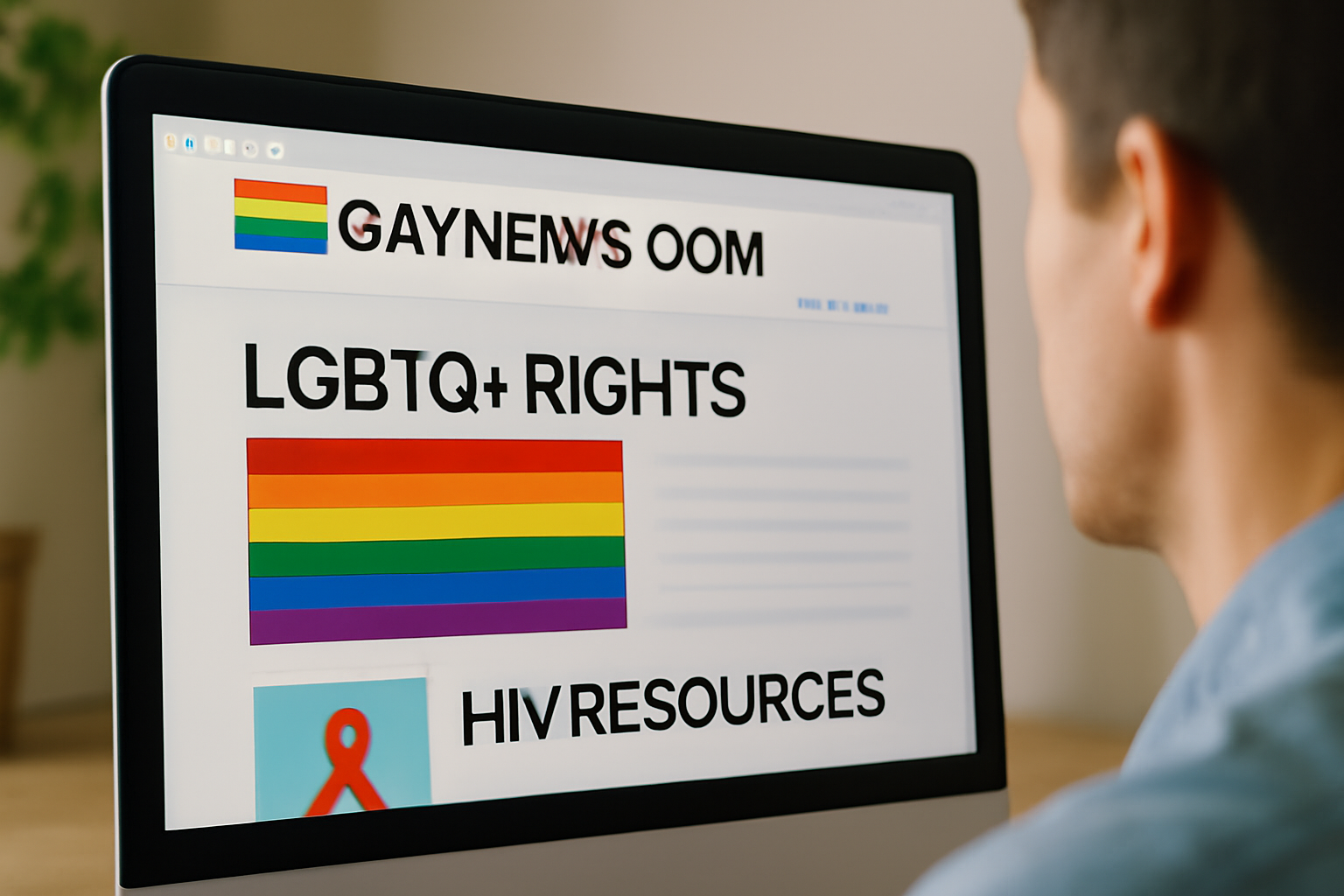
The recent changes implemented by the administration have sparked significant concern among LGBTQ+ communities and advocates. Reports have surfaced indicating that mentions of LGBTQ+ rights and HIV resources have been systematically removed from several prominent government websites. This action represents a rollback of recognition and support that many had fought hard to achieve.
Background on Previous Efforts
For years, activists and community leaders have worked tirelessly to ensure that government resources are inclusive of all individuals, regardless of gender identity or sexual orientation. Access to accurate information about health services, rights, and support networks is vital, especially for marginalized groups who have historically been underserved and stigmatized.
Under previous administrations, there was a concerted effort to make sure that government websites served as a valuable resource for these communities. Information about HIV prevention, treatment options, and LGBTQ+ rights were prominently featured, helping to bridge the gap in access to critical information.
What Changed?
Recently, however, it has come to light that several key government websites have quietly removed or significantly altered pages and sections dedicated to LGBTQ+ and HIV resources. This change has occurred without any formal announcement or public consultation, leading to confusion and concern among advocates and community members.
Some of the removed content includes guidance on anti-discrimination protections, as well as directories of health services specifically tailored for LGBTQ+ individuals and those living with HIV. The absence of this information could lead to increased difficulties in accessing healthcare and understanding legal rights.
The Impact on the LGBTQ+ Community
The removal of these resources can have far-reaching consequences. For many, these government websites serve as a first point of contact for learning about their rights and available services. Without easily accessible and reliable information, individuals may find themselves at a disadvantage, especially when faced with discrimination or when seeking medical care.
For healthcare providers, educators, and advocates, the lack of official government resources makes it harder to direct individuals to accurate and authoritative information. This can lead to increased misinformation and stigma surrounding issues that are already sensitive and complex.
Community Response
In response to these changes, numerous LGBTQ+ organizations and advocates have voiced their concerns. Many are calling for the restoration of the removed content and are urging community members to remain vigilant and informed about their rights. There is also a push to create alternative resources and directories to fill the gap left by the removal of government-hosted information.
Activists are also encouraging individuals to reach out to their representatives and demand transparency and accountability in how these decisions are made. Civic engagement is being highlighted as a crucial tool in advocating for the reinstatement of these resources.
Looking Forward
While the current situation is challenging, it has also galvanized many within the community to come together and support one another. There is a renewed emphasis on grassroots organizing and peer support networks to ensure that everyone has access to the information and resources they need.
The future of LGBTQ+ rights and access to healthcare resources may be uncertain, but the resilience and determination of the community remain steadfast. Continued advocacy and collaboration will be key in overcoming these setbacks and advancing the cause of equality and inclusion for all.
As members of the LGBTQ+ community and allies, it is important to stay informed and proactive. Signing up for newsletters, participating in community events, and supporting organizations that fight for equality are all ways to contribute positively to the ongoing effort for change.
Together, we can work towards a world where all individuals, regardless of their identity, can access the information and support they need to thrive.
Related Posts
Triumphant Trans Woman Wins Legal Battle and Inspires Others to Stand Up for Their Rights
Breaking new ground: a landmark victory in transgender rights After battling in courtrooms and enduring endless challenges, Diana Portillo, a transgender woman, has secured a monumental victory in her decade-long fight against workplace discrimination. The result? Nearly $1 million awarded in a historic settlement. But this isn't just a win on paper—it represents a powerful precedent in combati [...]
Pride Month in Latin America: Protests and Demands for Equality
**Celebrating Pride and advocating LGBTQ+ rights in Latin America** Pride Month in Latin America was a lively mix where celebration met activism. Communities united, not just throwing a party but making a stand—demanding equality and pushing governments toward better protection and rights recognition. Throughout Latin America, pride events erupted in marches and cultural displays, each with a c [...]
Transgender Erasure Actions Implemented by National Park Service
```html Trump administration's impact on national park service and transgender recognition The Trump administration made notable moves in undermining transgender representation, which included directing agencies like National Park Service not include "T" and "Q" when they refered “LGBTQ” in any official communication. This move seems part a broader plan by this administration aimed at reducin [...]